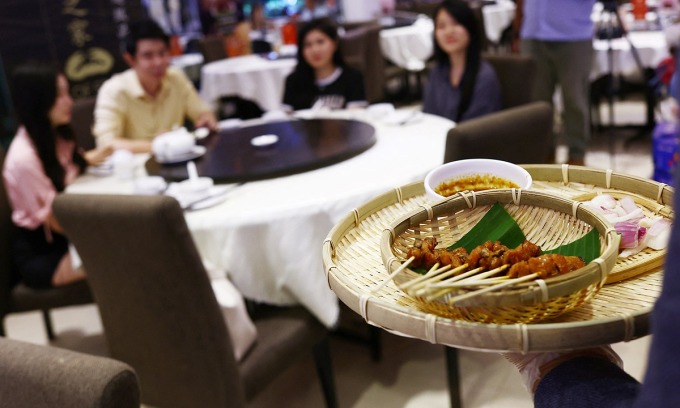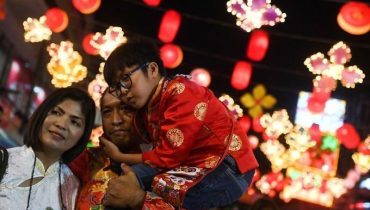At House of Seafood, a popular restaurant in Singapore, diners are now enjoying dishes featuring a unique ingredient: crunchy crickets. This innovative menu addition follows the approval by Singapore’s stringent food authority for human consumption of 16 insect species, including crickets, grasshoppers, grubs, and mealworms.
Insects have been a staple street food in many parts of Southeast Asia but have not been commonly consumed in Singapore, a wealthy financial hub with strict food import regulations. Francis Ng, the chief executive of House of Seafood, reports that customers are enthusiastic about the new dishes, particularly those designed to highlight the insects, such as tofu that appears to have bugs crawling out and glutinous rice balls with silkworms.
Notes that the visual appeal of these dishes has boosted their popularity, especially among patrons who enjoy sharing their experiences on social media platforms like TikTok. The restaurant has created a menu featuring 30 insect-based dishes, which will be available to the public once importers receive full approval from the food authority. Currently, the restaurant is offering free samples to introduce the concept.

Singapore Embraces Sustainable Food Sources
In a bid to enhance its food security, Singapore announced in 2019 its goal to produce 30% of its nutritional needs by 2030, a significant increase from the current situation where 90% of food is imported. Paul Teng, a food security expert at the Nanyang Technological University’s S. Rajaratnam School of International Studies, believes that insects can play a crucial role in achieving this goal, provided the public overcomes the initial reluctance to try them.
“Insects are highly nutritious, being almost entirely protein,” Teng explains, emphasizing the need for local production to make this alternative protein source affordable. He acknowledges the challenge in gaining consumer acceptance but remains optimistic, stating that he personally has no issue with eating insects.
The United Nations recognizes insects as a sustainable protein source, essential for feeding a global population projected to reach 9.7 billion by 2050. This recognition, coupled with increasing concerns about food security due to extreme weather and conflicts, has spurred interest in the nutritional benefits of insects.
In Singapore, regulations mandate that all insects approved for human consumption must be farmed in controlled environments and free from contaminants such as manure or rotten food. The Food and Agriculture Organization is also promoting the farming of insects for both human consumption and animal feed. Despite local interest, the high cost of imported insects remains a barrier; Ng reveals that insects currently account for 10% of his restaurant’s costs, making them more expensive than traditional protein sources like eggs.
While it is still uncertain whether insects will become a staple in the Singaporean diet or if their popularity will wane like that of some plant-based meat products, early responses from diners are positive. Bregria Sim, a 23-year-old logistics executive, expresses willingness to incorporate insects into her diet due to their high protein content, even at a cost of around S$40 ($30) for novelty dishes.
This innovative approach to dining not only offers a potential solution to food security but also introduces Singaporeans to a sustainable and nutritious food source.


